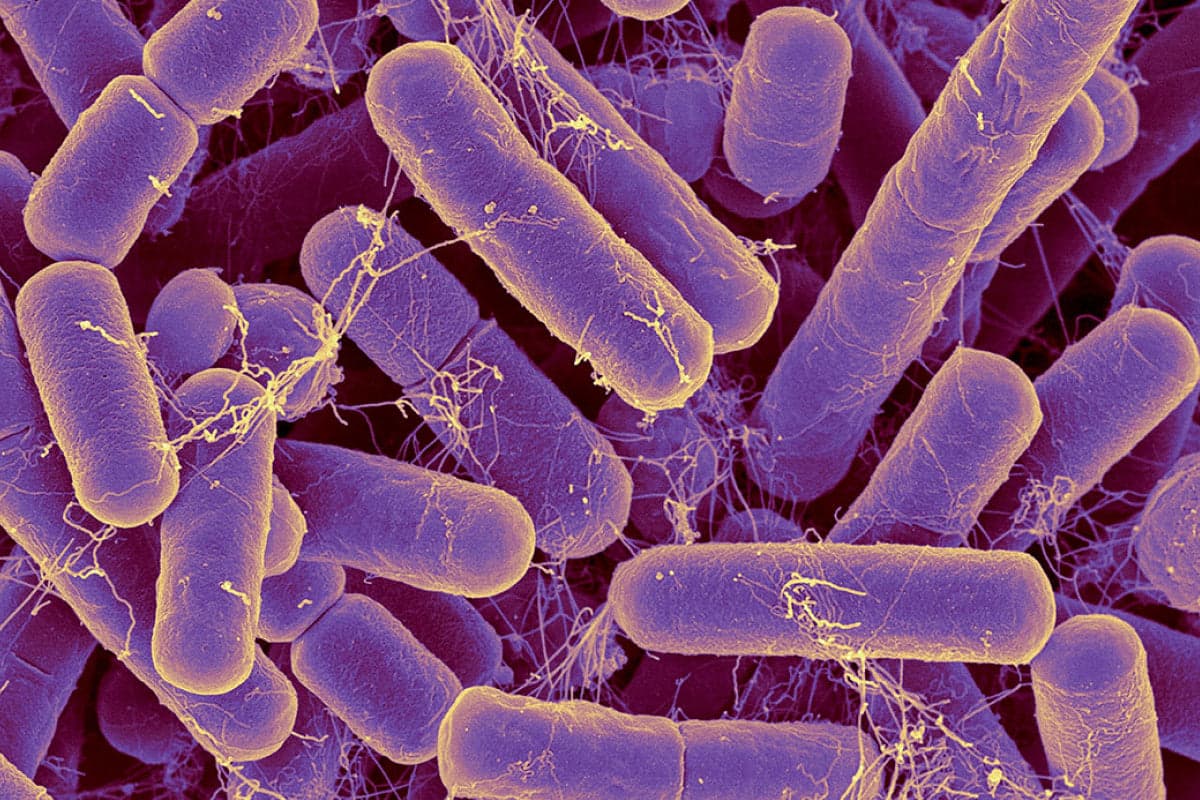What A Gut Health Nutritionist Wants You To Know About The Gut Barrier

Written by: Marilia Chamon
Written on: December 13, 2024
When we think about our health, the gut often takes centre stage, and for good reason. Beyond digesting foods, your gut is home to a complex system that protects your body from harmful invaders while allowing nutrients to be absorbed. This protective shield is called the gut barrier, and understanding how it works is essential to appreciating the link between gut health and overall health.
What is the gut barrier and why is it important?
The gut barrier is a sophisticated structure that lines the digestive tract - think of it as your body’s personal security system. It selectively allows essential nutrients and water to pass into your bloodstream while keeping harmful substances like toxins, bacteria, and undigested food particles out. It consists of several components:
A mucosal layer that traps harmful bacteria
Specialised gut cells held together by tight junctions that decide what passes through
A vigilant immune system, ready to fight off invaders
This barrier’s role is paramount because it affects nearly every aspect of your health. A well-functioning gut barrier ensures optimal nutrient absorption and protects your body from inflammation and infections. Since around 70% of the immune system resides in the gut, the barrier is also a key player in immune regulation. Its integrity directly impacts not just gut health but also other functions like metabolism and mood regulation.
What happens when the gut barrier is compromised?
Clients often ask what happens when the gut barrier is compromised. Common signs include bloating, irregular bowel movements, or reactions to foods that were once well-tolerated. While these symptoms are non-specific, they often serve as a starting point for deeper investigation into their gut health.
When the gut barrier becomes compromised - a condition often referred to as increased intestinal permeability (aka leaky gut) - substances like toxins, bacteria, and undigested food particles can escape into the bloodstream. This can lead to low grade inflammation, which manifests differently in everyone. Some people experience digestive symptoms like bloating or diarrhoea, while others report joint pain, skin issues, or even mood disturbances like anxiety.
What weakens the gut barrier?
The gut barrier is surprisingly delicate and can be disrupted by various factors, many of which are common in modern life. A diet high in processed foods or saturated fats has been shown to weaken the gut lining, as have additives like emulsifiers commonly found in ultraprocessed foods.
Chronic stress, another major factor, disrupts gut-brain communication and can weaken the tight junctions between cells. Environmental toxins, medications and alcohol are also well-documented contributors to gut barrier dysfunction.
The gut barrier and the gut microbiome
The gut microbiome, your gut’s community of trillions of microbes, plays a critical role in maintaining barrier function. Beneficial gut bacteria produce short-chain fatty acids (SCFAs), such as butyrate, that nourish and strengthen the gut lining. These SCFAs also help regulate the tight junctions between gut cells, preventing harmful substances from slipping through.
On the flip side, a disrupted microbiome can lead to imbalances, weakening the gut barrier and making it more permeable. This state, commonly referred to as leaky gut, allows toxins and harmful bacteria to escape into the bloodstream, triggering inflammation and immune responses.
How to naturally strengthen and repair the gut barrier
By now you are probably wondering what can be done to strengthen and repair this dynamic and sophisticated structure - the good news is that the gut barrier can heal by implementing a few different strategies:
Focus on Fibre and Polyphenol-Rich Foods: fibre feeds beneficial gut bacteria, allowing them to produce SCFAs like butyrate, which are essential for repairing the gut lining. Polyphenols, plant compounds found in berries, green tea, cacao and olive oil, have strong anti-inflammatory and antioxidant effects that protect the gut barrier.
Include Key Nutrients:
Glutamine: an amino acid that directly fuels gut cells. I have seen it work time and time again with clients that experience chronic digestive issues, particularly those with post-infectious IBS.
Zinc: zinc carnosine in particular has been shown to promote gut healing by strengthening the gut barrier and reducing inflammation.
Vitamin D: the sunshine vitamin is not only essential for a well-functioning immune system, but adequate levels are a must to strengthen the gut barrier.
Consider Probiotics: I am a big fan of specific probiotic strains that have been shown to enhance gut barrier function and increase SCFAs production - for example Lactobacillus rhamnosus GG, Bifidobacterium lactis HN019, and Bacillus subtilis HU58.
Mind Your Lifestyle: stress management, regular, good quality sleep, and moderate exercise all contribute to gut health. I often encourage clients to integrate deep breathing or yoga into their routines, not just for relaxation, but to actively support their gut-brain connection.
Minimise Modern Life Insults: the unnecessary use of medications, frequent consumption of ultra-processed foods, and exposure to environmental toxins like heavy metals and pesticides can significantly contribute to gut barrier dysfunction.
The gut barrier is a cornerstone of health, influencing everything from digestion, food intolerances to immunity. By nourishing your body with the right foods, nutrients and lifestyle habits, you can support this vital system and enjoy better health from the inside out. If you suspect your gut barrier needs extra attention, consider consulting with a gut health specialist for tailored support.
Marilia Chamon is a London-based registered nutritional therapist and gut health specialist, she is the founder of Gutfulness Nutrition. Marilia completed the Monash University 'Low FODMAP Diet for IBS' training course for health professionals, is a SIBO Approved Practitioner and certified in Applying Functional Medicine in Clinical Practice from the world renowned Institute For Functional Medicine (IFM). With years of experience in helping clients achieve better digestive health, she is the creator of The Gutfulness Method, a 16-week personalised programme designed to help individuals overcome chronic digestive symptoms.
This article is for informational purposes only, even if and regardless of whether it features the advice of physicians and medical practitioners. This article is not, nor is it intended to be, a substitute for professional medical advice, diagnosis, or treatment and should never be relied upon for specific medical advice. The views expressed in this article are the views of the expert and do not necessarily represent the views of Healf
This article is for informational purposes only, even if and regardless of whether it features the advice of physicians and medical practitioners. This article is not, nor is it intended to be, a substitute for professional medical advice, diagnosis, or treatment and should never be relied upon for specific medical advice. The views expressed in this article are the views of the expert and do not necessarily represent the views of Healf






